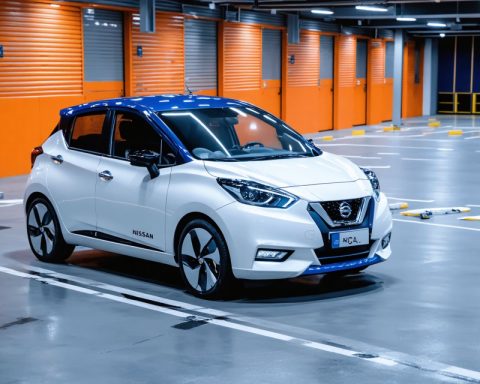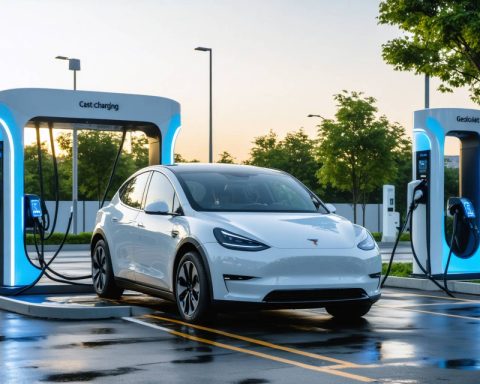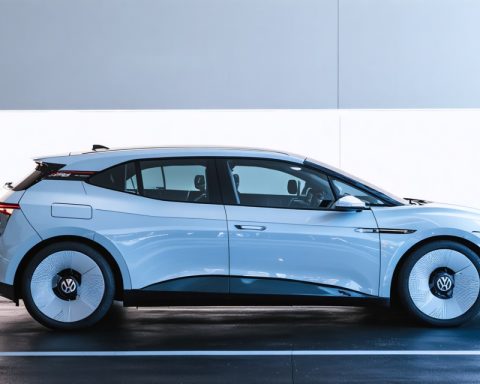- Electric vehicles (EVs) offer environmental and financial benefits, promising significant savings compared to combustion engines.
- Recent policy changes mean EVs will no longer be exempt from vehicle excise duty (VED), introducing a compulsory annual fee from the second year of ownership.
- Luxury car tax of £425 annually will apply to new EVs priced over £40,000 from the second to the sixth year post-registration.
- The zero emission vehicles (ZEV) mandate calls for more zero-emission models but warns of increasing EV running costs affecting adoption rates.
- The persistent high upfront cost presents a challenge, particularly as taxation thresholds seem outdated and affect standard models.
- The government is aiming to balance fiscal needs with climate goals, with calls for reassessment of tax policies to encourage EV adoption.
- Despite the hurdles, EVs are pivotal to a sustainable future, offering reduced emissions and long-term financial savings.
Electric vehicles (EVs) promise a greener future, offering both environmental and financial savings. Yet, in the complex dance of evolving taxes and incentives, the road to an electric dream can seem puzzling.
Imagine a world where the hum of electric motors largely replaces the clatter of combustion engines. In this vision, the owners of the top 10 best-selling EVs see their wallets grow plump with an average annual saving of nearly £1,200 over the vehicle’s lifetime. The secret ingredient here? The stark contrast in costs between electricity and petrol, which tips the scales in favor of electrics.
But not all is as electrifying as it sounds. This week marks a crucial turning point. The Treasury says goodbye to the era of exempting EVs from the vehicle excise duty (VED), a move that nudges EV owners towards a reality where at least £195 will greet them annually by the second year of ownership. For the new EVs that flaunt price tags beyond £40,000, a hefty £425 whisper of luxury car tax will follow them from the second to the sixth year post-registration.
These changes come on the heels of the ambitious zero emission vehicles (ZEV) mandate, which insists on a growing collection of zero-emission models in every carmaker’s stable. The shift remains crucial for Britain’s green ambitions, pushing manufacturers to cut prices in a bid to woo environmentally conscious consumers.
Yet, as the government puts the final brush strokes on changes to ZEV mandate rules, aimed at easing the penalty burden for non-compliant manufacturers, concerns reverberate through the community of potential EV converts. With an astute eye, experts urge attention: the climb in EV running costs could stall the momentum of Britain’s electric revolution. Families, longing for the cost and ecological benefits of electrics, face the risk of sticking with more expensive petrol-driven adversaries.
The sweet spot in EV taxation also grapples with the often underestimated hurdle of upfront costs. The threshold for luxury car tax—a relic from eight years past—now looms ominously over standard models like the Kia e-Niro or Volkswagen ID.3, threatening to tax them as if they were opulent chariots parading down roads of old.
In this dance, the government walks a fine line. Balancing fiscal responsibilities with climate imperatives requires a tactful approach. While the Treasury reassures that freezing first-year VED rates for EVs will bolster the transition, the mix of rising costs and outdated tax brackets calls for swift and thoughtful reassessment.
At the core, however, the takeaway remains unambiguous: EVs embody our ticket to an environmentally kinder future, promising both long-term savings and reduced emissions. It’s a journey worth investing in, as the world transitions to a cleaner, quieter road ahead.
Are Electric Vehicles Still Worth It? Navigating the Maze of Taxes, Incentives, and Savings
Introduction
Electric vehicles (EVs) are often celebrated as a harbinger of a greener future, offering environmental and financial advantages over traditional petrol-based cars. However, recent shifts in the landscape of taxes and incentives have introduced new challenges for potential EV owners. This article explores these intricacies, supplemented by actionable insights and forecasts.
Understanding the Changing Tax Landscape
Vehicle Excise Duty (VED) Changes
Recent changes in VED rules mark a significant moment for electric vehicle owners in the UK. The government has decided to eliminate the exemption of EVs from VED, resulting in an annual fee starting at £195 from the second year of ownership. Luxury EVs priced above £40,000 will face an additional annual tax (known as the luxury car tax) of £425 from the second to the sixth year.
Implications for Buyers
1. Increased Ownership Costs: Prospective buyers must consider these new costs in their budget, potentially affecting the initial decision to purchase an EV.
2. Potential Savings: Despite this, EVs can still offer significant savings over their lifespan due to lower fuel and maintenance costs compared to petrol vehicles.
Industry Trends and Predictions
The Zero Emission Vehicles (ZEV) Mandate
The ZEV mandate compels automakers to progressively increase the percentage of zero-emission models they offer. This policy aims to drive down prices through increased market competition, encouraging more consumers to transition to EVs.
Market Forecast
1. Price Reductions: Expect automakers to cut EV prices to comply with ZEV mandates and attract environmentally conscious consumers.
2. Technological Advancements: Continued innovation in battery technologies could lead to decreased costs and extended range, making EVs more attractive.
Pros and Cons of Electric Vehicles
Pros
– Environmental Benefits: EVs emit no tailpipe pollutants, contributing to cleaner air and reduced carbon footprints.
– Long-Term Savings: Lower fuel and maintenance costs can result in substantial financial savings over the vehicle’s life.
Cons
– Higher Upfront Costs: Despite incentives, the initial purchase price of EVs can be significantly higher than combustion engine vehicles.
– Infrastructure Limitations: Inconsistent charging infrastructure can be a barrier for some prospective buyers, particularly in rural areas.
How-to Steps: Maximizing EV Benefits
1. Leverage Incentives: Stay informed about government grants and incentives to reduce initial costs.
2. Optimal Charging Strategies: Use home charging facilities with off-peak electricity rates to minimize fuel expenses.
3. Regular Maintenance: Even though EVs require less maintenance, regular checks can prolong their lifespans and efficiency.
Conclusion and Quick Tips
While the transition to electric vehicles may present initial financial hurdles, the long-term environmental and economic benefits reinforce their worth. Potential EV owners should stay informed about tax changes, utilize available incentives, and adopt cost-effective strategies to maximize savings.
Recommended Action: Before purchasing an EV, conduct a comprehensive cost analysis, factoring in new tax implications and potential savings from reduced fuel and maintenance costs. Consider potential benefits offered through government incentives and continuously monitor policy changes that could impact your investment decision.
For more information on electric vehicles and ongoing developments in the industry, visit the UK government’s Department for Transport at Gov UK.
—
This evolving landscape underscores the need for a nuanced understanding of the benefits and challenges associated with electric vehicles, offering a roadmap for informed, eco-friendly consumer choices.















